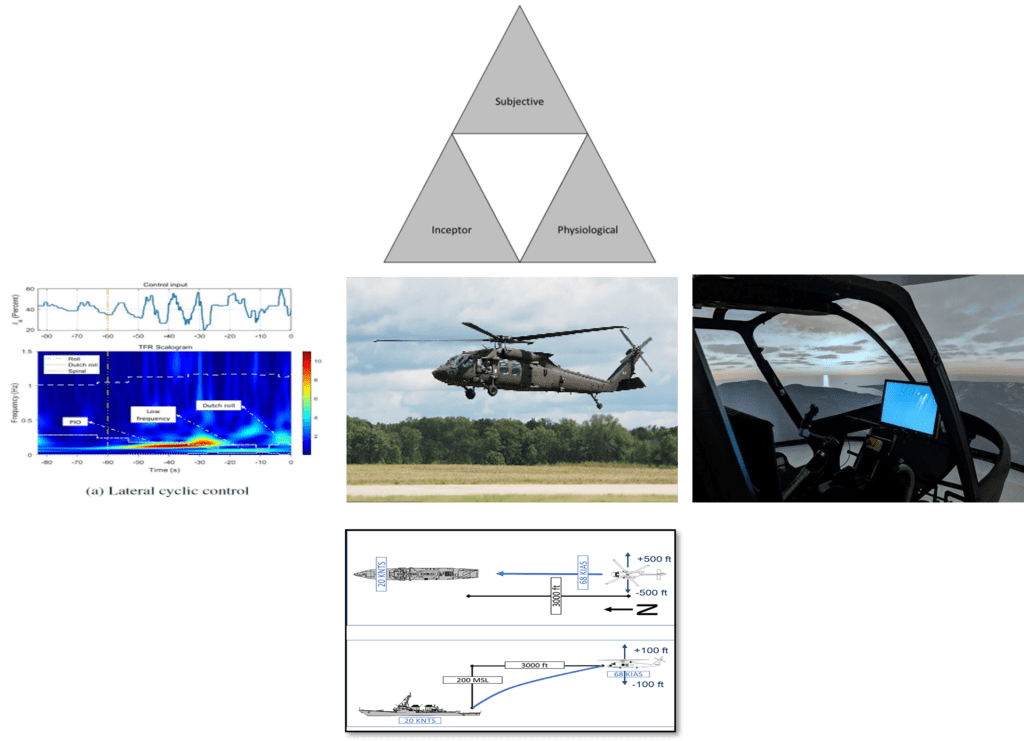
The Vertical Lift Research Center of Excellence (VLRCOE) Rotorcraft Flight Simulation Laboratory is tasked with conducting research into cueing modalities that improve situational awareness and reduce pilot workload during the critical phases of flight across a broad spectrum of flight operations, both maritime and land-based.
Our research is multidisciplinary, drawing from the fields of aviation human factors, flight mechanics and control, neuroscience, and electrical engineering.
Inspired by insights from human-robot interaction and neuromotor adaptation studies, our lab investigates the cognitive and physiological responses of pilots to different cueing modalities by utilizing the state-of-the-art Georgia Tech fixed-based rotorcraft simulator. We conduct manned flight simulation tests that facilitate the capture of a comprehensive data set through a variety of physiological sensors (including EMG, EEG, and eye tracking), pilot inceptor displacements, vehicle responses, and subjective assessments (Bedford, NASA TLX, etc.). The acquisition of such data allows us to evaluate new cueing designs to make recommendations and provide engineering guidance to the rotorcraft community on cueing sets for flight operations.
The outcomes of our research hold significant implications for both existing rotorcraft platforms—such as the UH-60 Blackhawk, CH-53, and CH-47—and future rotorcraft designs within the gambit of the Army’s Future Vertical Lift program. By pushing the boundaries of cueing system technology, VLRCOE Task 10 contributes to the advancement of rotorcraft safety, mission effectiveness, and pilot proficiency across diverse operational scenarios.
